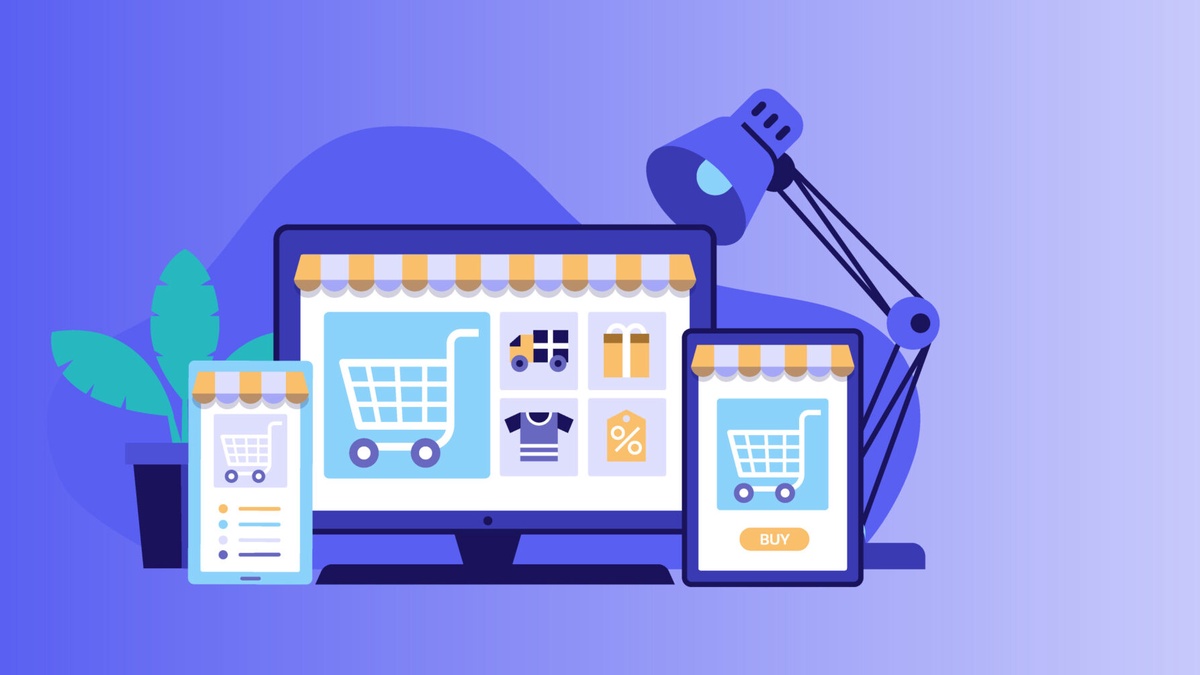As a retailer, you understand the importance of having a strong online presence to drive traffic to your website and ultimately, increase sales. However, with so many factors to consider when it comes to search engine optimization(SEO), it can be overwhelming to know where to start. Knowing 12 essential retail SEO prioritieswill help narrow down the task and will surely elevate your retail strategy.
The Importance Of Retail SEO Priorities In The Digital Age
In today's digital age, it's more important than ever for retailers to have a strong online presence. With millions of potential customers using search engines like Google every day to find products and services, it's crucial to have a solid SEO strategyin place. SEOis the process of optimizing your website and contentto appear at the top of search engineresults pages (SERPs) for relevant keywords and phrases.
A strong retail SEOstrategy can help you:
- Increase website traffic
- Improve search rankings
- Boost brand awareness
- Drive sales and revenue
But where do you start? Here are 12 essential priorities for your retail SEO strategy.
1. Conduct Keyword Research
Keyword research is the foundation of any successful SEO strategy. Before you can optimize your website and content, you need to know what keywords and phrases your target audience is searching for. There are several tools you can use to conduct keyword research, including:
- Google Keyword Planner
- SEMrush
- Ahrefs
- Moz Keyword Explorer
Once you've identified your target keywords, you can optimize your website and content to include those keywords and phrases.
2. Optimize Your Website Structure
Your website's structure plays a crucial role in SEO. A well-organized website structure makes it easier for search engine crawlers to index your pages and understand the hierarchyof your content. Here are some tips for optimizing your website structure:
- Use a logical hierarchy of headers (H1, H2, H3, etc.)
- Include internal links between pages
- Use descriptive URLs
- Ensure your website is mobile-friendly
3. Optimize Your Website Speed
Website speed is a key ranking factor for Google. A slow-loading website can result in higher bounce rates and lower search rankings. Here are some tips for optimizing your website speed:
- Compress images
- Minimize HTTP requests
- Use a content delivery network (CDN)
- Reduce server response time
4. Optimize Your Website Content
Your website content is one of the most important factors for SEO. It's important to create high-quality, relevant content that incorporates your target keywords. Here are some tips for optimizing your website content:
- Use your target keywords in your content
- Create long-form content (over 1,000 words)
- Use internal and external links
- Include multimedia (images, videos, infographics)

How to Rank No. 1 on Google: Ecommerce SEO Secrets
5. Optimize Your Product Pages
Your product pages are the most important pages on your website for driving sales. It's important to optimize your product pages for both users and search engines. Here are some tips for optimizing your product pages:
- Include high-quality product images
- Write unique product descriptions
- Use schema markupfor products
- Include customer reviews and ratings
6. Optimize Your Category Pages
Category pages can help users navigate your website and find products more easily. They can also help search engines understand the hierarchy of your website. Here are some tips for optimizing your category pages:
- Use descriptive category names
- Include internal links to subcategories and products
- Write unique category descriptions
- Use schema markup for categories
7. Use Local SEO
If you have a physical retail location, it's important to use local SEO to attract customers in your local area. Here are some tips for optimizing your local SEO:
- Create a Google My Businesslisting
- Include your businessname, address, and phone number (NAP) on your website and listings
- Use local keywords in your content
- Encourage customers to leave reviews
8. Use Social Media
Social mediacan help increase brand awareness, drive traffic to your website, and improve search rankings. Here are some tips for using social media for SEO:
- Share your website content on social media
- Use social media to engage with customers and build relationships
- Use social media to promote special offers and discounts
- Encourage customers to share your content and leave reviews
9. Monitor Your Analytics
Monitoring your website analytics can help you track your progress and make informed decisions about your SEO strategy. Here are some key metrics to monitor:
- Website traffic
- Bounce rates
- Conversion rates
- Search rankings
10. Use Google Search Console
Google Search Consoleis a free tool provided by Google that can help you monitor and improveyour website's search performance. Here are some things you can do with Google Search Console:
- Submit your sitemap
- Monitor crawl errors and security issues
- Monitor search rankings
- View search analytics data
11. Stay Up-To-Date With SEO Trends
SEO is constantly evolving, so it's important to stay up-to-date with the latest trends and best practices. Here are some ways to stay informed about SEO:
- Read industry blogs and publications
- Attend conferences and webinars
- Follow SEO experts on social media
- Participate in online forums and communities
12. Hire An SEO Professional
If you're struggling to achieve the results you want with your SEO strategy, it may be time to hire a professional. An experienced SEO professional can help you identify areas for improvement and develop a customized strategy for your business.
The Role Of Mobile Optimization In Retail SEO Strategy
With the rise of mobile usage, optimizing for mobile has become an essential part of any SEO strategy, especially for retailers. Mobile devices account for more than half of all internet traffic, and customers are increasingly using their smartphones to search for products and services. Therefore, it's crucial for retailers to ensure that their websites are optimized for mobile devices to provide a seamless user experience.
Mobile optimization can impact your search rankings as well. Google has stated that mobile-friendliness is a ranking factor in search results, and websites that are not optimized for mobile devices may be penalized in the search rankings. In addition, a poor mobile experience can lead to a high bounce rate, which can negatively impact your website's performance.
To optimize your website for mobile devices, there are several best practices to follow:
- Use a responsive design that adjusts to different screen sizes
- Optimize images and videos for fast loading times
- Use large, easy-to-read fonts and buttons
- Simplify navigation and avoid using pop-ups and other intrusive elements
- Test your website on different mobile devices to ensure compatibility
By prioritizing mobile optimization in your retail SEO strategy, you can improve your search rankings, increase website traffic, and provide a better user experience for your customers.
People Also Ask
What Is The Difference Between On-page And Off-page SEO?
On-page SEO refers to the optimization of your website and content, while off-page SEO refers to activities outside of your website that can impact your search rankings, such as backlinking and social media engagement.
How Long Does It Take To See Results From SEO?
SEO is a long-term strategy, and it can take several months to see significant results. However, if you're consistently implementing best practices and monitoring your progress, you should start to see improvements in search rankings and traffic over time.
Can I Do SEO Myself, Or Do I Need To Hire A Professional?
You can certainly do SEO yourself, but it can be a complex and time-consuming process. Hiring an experienced SEO professional can help ensure that you're making the most of your time and resources, and can help you achieve better results more quickly.
How Can Local SEO Benefit Retailers?
Local SEO can be a game-changer for retailers who have brick-and-mortar stores. By optimizing for local search, retailers can increase visibility in local search results and drive more foot traffic to their physical stores. To optimize for local search, retailers can create a Google My Business listing, use local keywords in their website content, and encourage customer reviews.
How Can User Experience Impact Retail SEO?
User experience (UX) is an important factor in retail SEO. A good UX can lead to lower bounce rates, longer session durations, and higher conversion rates. These metrics can positively impact search rankings and drive more traffic and revenue to your website. To improve UX, retailers can focus on website speed, mobile optimization, clear navigation, and high-quality content.
Conclusion
In conclusion, a strong retail SEO strategy is essential for driving traffic to your website, improving search rankings, and increasing sales and revenue. By following these 12 essential retail SEO priorities, you can develop a comprehensive SEO strategy that will help you achieve your business goals.
Remember to conduct keyword research, optimize your website structure and content, and stay up-to-date with the latest SEO trends. And if you need help, don't be afraid to hire an SEO professional.

